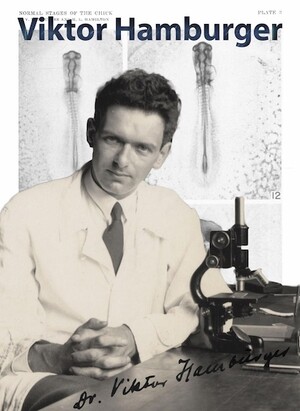When the Nobel Committee awarded the 1986 Nobel Prize in Physiology or Medicine to Levi-Montalcini and Cohen, Hamburger was not included, a point that disturbed him more than he often let on. Documents in Hamburger’s archival collection reveal his response and how he felt even years later. Many colleagues criticized the Prize Committee’s decision; the various points of view have been discussed in several publications, including an article by Purves and Sanes in 1987 [see references], by Hamburger himself in several unpublished autobiographical accounts in the Hamburger Papers and has been summarized in the in the biographical memoir for the National Academy of Sciences series. Admittedly, after the mid-1950s his own work began to move in other directions, though he did return to aspects of neuronal growth and survival and how these can influence limb buds, as discussed below. Nonetheless, he took solace from the realization that he had started the NGF work and promoted it intellectually and financially during the crucial early years, from 1934 to 1954.
- Allen, Garland E. "A Pact with the Embryo: Viktor Hamburger, Holistic and Mechanistic Philosophy in the Development of Neuroembryology, 1927–1955." Journal of the History of Biology 37 (2004): 421–75.
- Cowan, W. Maxwell "Viktor Hamburger and Rita Levi-Montalcini: The Path to the Discovery of Nerve Growth Factor." Annual Review of Neuroscience 24 (2001): 551–600.
- Hamburger, Viktor. "The Journey of a Neuroembryologist." Annual Review of Neuroscience 12 (1989): 1–12.
- MBL History Project. (2016). Victor Hamburger Papers. https://hpsrepository.asu.edu/handle/10776/9/discover
- Maienschein, Jane. (2011). Maienschein: 100 Years Exploring Life. Charleston: Nabu Press.

